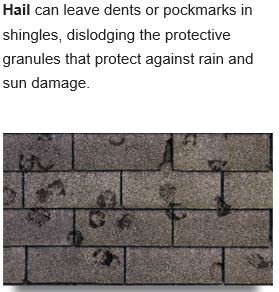Questions to Ask a Roofer Before Hiring
1. Are you licensed?
Most states require a contractor to be licensed. If you are in a state that does not require licensing, ensure that they have a local permit and the code inspector will be looking over the work they will be performing. Request that you view a certificate from the material manufacturer that ensures the contractor has been trained to put the product on properly, by proper specifications, and endorsed by the manufacturer to do such.
2. Do you have workman’s comp insurance?
In the state of Georgia for example visit:
http://sbwc.georgia.gov/online-employers-workers-compensation-coverage-verification
Sites like these give the public the opportunity to ensure the contractor has protection in the event a worker is injured while on a person’s property. In today’s litigious society it is important to protect yourself form a worker becoming injured while on your property. Many state laws, when workers comp is not present, provide that the home owner is ultimately responsible for those hurt while on their property. If a worker hurts his back, he may have to have surgery or therapy for the rest of his life. It is important to ensure he can receive the medical services needed through workers comp coverage, and not risk losing your home and other assets in court to pay his medical expenses.
3. Do you carry general liability insurance?
While workers comp covers the people on your property, general liability covers your actual property. General liability coverage protects from several situations such as a fire started from friction of cutting plywood or welding etc. It is important to ask for a copy of this coverage to ensure the contractor has proper coverage. Last year a home owner shared with us they asked for the general liability coverage from a roofer bidding on their home and found it covered landscaping only. It is important to read the policy to ensure the contractor is properly covered and the policy will cover the risk of the job you require. Some unethical contractors will buy a cheap policy that basically covers nothing and hope the home owner doesn’t look over the policy.
4. Do you have commercial vehicle insurance?
Any vehicle allowed on the property by the contractor needs special commercial coverage in case of equipment failure or human error. In my years I have seen boom truck fail and crash through roofs, I have seen delivery trucks bump house walls sending them crashing in. If it can happen it will happen so ensure that you are covered in such an event.
5. Will you use standoffs to protect my gutters or fascia?
A worker with materials on his shoulder can weight up to 300 lbs and all that pressure is transferred to the substrate the ladder is attached to. This can destroy your gutters by bending them. It can take the protective painting off, and it can pull them away from the fascia. There are many ways to ensure the gutters, siding, and windows are protected from the process. Just ensure the company you chose has a good plan to protect these areas.
6. Will you remove my current roof material down to the decking?
It is important to remove the current material to ensure the decking is viewed and in good shape. If the decking has issues it needs to be resolved before applying new materials. If the decking is soft the nails will pull out in a strong windstorm. Workers may fall through soft decking and become injured if it isn’t replaced. If you are getting quotes make sure they are apples to apples and one contractor isn’t cheaper but planning on skipping steps the other contractor is going to take to do the job properly. Also make the contractor aware of any electrical or gas lines that may not be up to code and that could be damaged with nails driven into the decking etc.
7. Are you installing drip edge?
Drip edge is usually code in most areas now days but many contractors skip it to keep the quote price down. Drip edge insures the water shedding off of your home is placed into your gutters or directed away from your fascia to ensure longevity. It isn’t an expensive product, but if it is skipped, the damage that may result can be very costly.
8. Where and what container will you use to remove the old materials?
A yard, sidewalk or driveway may become greatly damaged by debris as it is removed from the roof if not protected properly. Certain trash bins will need plywood beneath them to prevent them from sinking into your yard or asphalt driveway. Always keep in mind that any yard ornaments or flower pots that are breakable need to be moved to a safe location until the job is completed. If you have a septic system, ensure it is clearly marked so no weight is placed atop of it. Make sure the contractors are aware of any sprinkler or water lines you may have in your yard.
9. In case of inclimate weather how are you prepared?
Every roofer takes a risk when they remove your roof. It is imperative that you ensure the roofer isn’t planning on a tear off when there is a chance of rain, or does not have the proper tarps or plastic covers needed during the project in case an unexpected rain cloud shows up. It is also important to ensure the rain protection is secured properly in case there are high winds.
10. Where is your office?
One of the biggest issues in the roof industry is fly by night roofers. Guys who show up, make quick money, and are never seen again. What do you do if your roof has an issue later? At times as a large contractor it is necessary to travel to keep a large work force employed rather than laying employees off during slow seasonal downturns. The important thing is to ensure the company is reachable. Call their office number, not the sales man’s number, and ensure they are easy to reach. Verify their standing with the BBB and read their reviews to ensure there are not complaints of not finishing or not making good on their workmanship warranties. This is where the next question comes into play….
11. What warranty do you offer?
It is best to protect your home by ensuring the contractor is certified by a manufacturer, and you purchase the manufacturer warranty. Once you receive your warranty certificate, if the contractor does not make good on their end you can call the shingle manufacturer and they will add pressure on the contractor and in some situation even send another certified contractor to fix the issue and then discontinue the relationship with the unethical contractor.
12. What is your cost per sheet of decking?
Since you don’t know what your decking looks like until the current material is removed, always get a price in writing on the contract of the decking before the project begins.
13. Who during the project do I communicate with in case I have any questions or concerns?
Many times home owners become discouraged because the project supervisor is away from the project purchasing materials etc. It is best to have a contact at the office or a cell number of someone you can call with any immediate concerns you may have.
14. Will everything be in writing?
Always get a very detailed quote to ensure contractors are quoting the same materials and scope of work. If something goes wrong, you do not want to end up in court without written proof of what was agreed upon so insist on a contract. Ensure that the payment schedule agreed upon is included so there is no confusion. As listed above also have any unknown prices such as decking, truss work etc. is listed just in case the issue arises later.
d in some situation even send another certified contractor to fix the issue and then discontinue the relationship with the unethical contractor.
12. What is your cost per sheet of decking?
Since you don’t know what your decking looks like until the current material is removed, always get a price in writing on the contract of the decking before the project begins.
13. Who during the project do I communicate with in case I have any questions or concerns?
Many times home owners become discouraged because the project supervisor is away from the project purchasing materials etc. It is best to have a contact at the office or a cell number of someone you can call with any immediate concerns you may have.
14. Will everything be in writing?
Always get a very detailed quote to ensure contractors are quoting the same materials and scope of work. If something goes wrong, you do not want to end up in court without written proof of what was agreed upon so insist on a contract. Ensure that the payment schedule agreed upon is included so there is no confusion. As listed above also have any unknown prices such as decking, truss work etc. is listed just in case the issue arises later.


